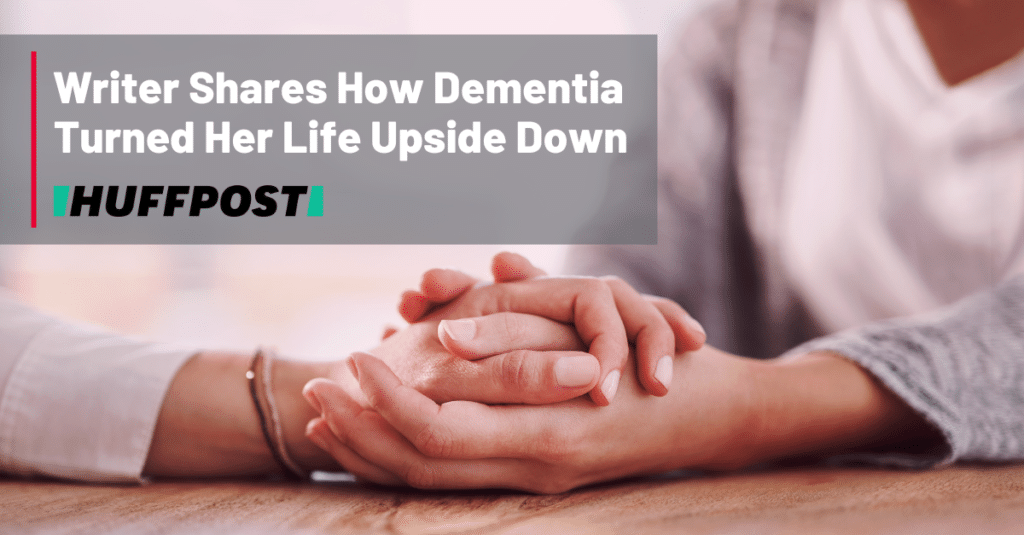Writer Shares How Dementia Turned Her Life Upside Down in HuffPost Article

Writer Jan M. Flynn shared how the dementias affecting her two sisters – including corticobasal degeneration (CBD) — has turned her and her family’s life upside down in an article published by Huffington Post.
Flynn recalls her experiences as the youngest of three sisters, and how she looked up to her older sisters, Abby and Sal, as role models as she grew up. She remarked how she looked up to them with a “mixture of envy and hero worship,” how she hung onto moments where they would dress her up “like a life-size doll,” and even how they disciplined her in place of their parents at times.
“When they thought I was getting off too easily for whatever annoyance I’d caused, they’d take me out of Mom’s earshot and scold me themselves,” Flynn said. “It worked: my sisters were my role models, and I craved their approval more than I did that of my parents or, later, even my friends.”
Abby, an artist and teacher, began to show signs of dementia as she reached her mid-60s. According to Flynn, it took years and a number of neurological screenings before she was diagnosed with Alzheimer’s disease.
Soon after, Flynn received a call from a friend of Sal’s, telling her that something was wrong and to come check on her sister. When she visited, Flynn noticed that her sister was considerably thinner and her posture had become hunched; she had recently suffered a fall down the stairs and had a bruise on her face. During a recent visit to a restaurant with her oldest son, she had rested her arm in her food, not noticing until he pointed it out to her.
Months later, Sal began meeting with neurologists, who would later diagnose her with corticobasal degeneration, a form of FTD that primarily affects movement.
Flynn notes that despite Abby’s Alzheimer’s, she is happy; she draws and paints, and spends each day with her husband. Flynn characterizes Sal’s CBD as a much crueler disease, however.
“[Sal’s] current facility is the best available in her area, providing round-the-clock care. She can summon help with the push of a button on a lanyard around her neck. But she has so little control over her limbs now that sometimes she can’t find the button, or she pushes the TV remote instead. She can no longer walk, stand or sit up unaided. She insists on feeding herself but it’s difficult to watch; choking is always a danger. Her speech has further weakened, her words slurred and halting to the point where they’re often indecipherable,” Flynn said.
Flynn found her family dynamic changed considerably by the diagnoses – once the baby sister being tended to by her older siblings, she was now looking after them both.
“I don’t talk much about this,” Flynn says. “Chronic, long-lasting tragedy is unnerving; nobody knows what to say in response to my stories. Friends tell me I’m strong, that I’m handling it well. I am not, I want to say but don’t: I’m a lost little sister wandering the shores of calamity.”
Whether you’re wondering how to get diagnosed, evaluating getting involved in clinical trials, or simply need to talk to somebody who understands what you’re going through, you can turn to the AFTD HelpLine. You can reach the HelpLine at 1-866-507-7222 or info@theaftd.org.
By Category
Our Newsletters
Stay Informed
Sign up now and stay on top of the latest with our newsletter, event alerts, and more…
